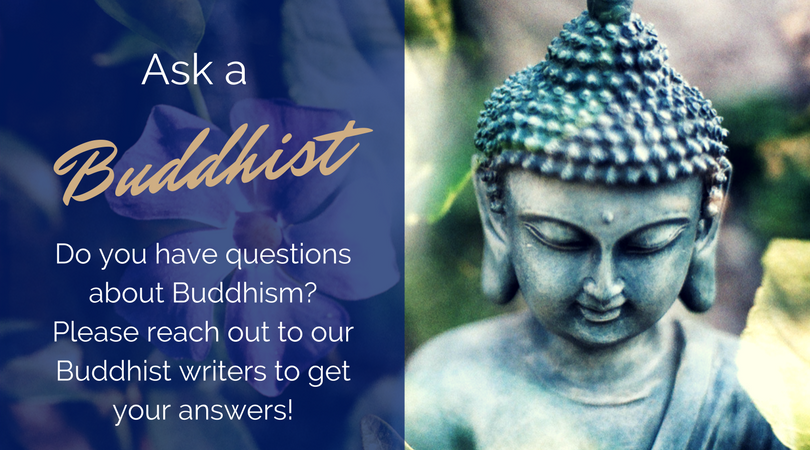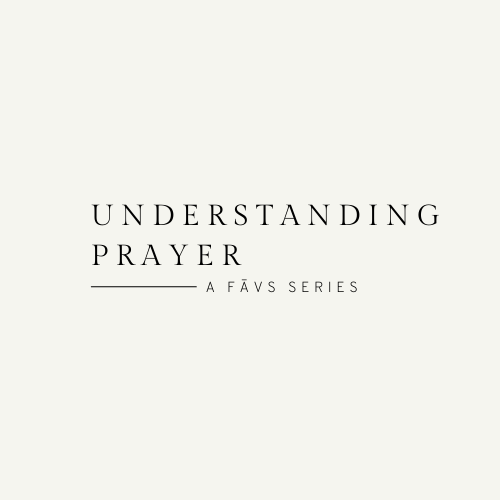Ask A Buddhist: Do Buddhists Pray?
What do you want to ask a Buddhist? Fill out the form below or submit your question online.
Do Buddhists pray?
In his lovely “An Anthology of Buddhist Prayer,” Jason Espada writes, “What all prayer has in common, whether it is Buddhist prayer, or theistic prayer, is that prayer expresses a world view … Prayer shows what a person believes in.”
The Tibetan word translated as “prayer,” monlam, suggests qualities of aspiration and resolve. Buddhist prayers, arising from a Buddhist worldview, assert our deepest aspirations to develop excellent qualities and to live them in our daily lives in order to benefit the world.
His Holiness the Dalai Lama, arguably the modern world’s best-known Buddhist, recites this prayer many times a day: “For as long as space endures, as long as living beings remain, until then may I, too, remain to dispel the misery of the world.” (Read the full aspirational prayer of the Dalai Lama below).
The Dalai Lama’s prayer exemplifies the Buddhist approach. He imbues every action with his motivation to benefit living beings and his prayer expresses the aspiration to be able to do so. His students aspire to do the same.
Although he is a Buddhist monk, in his public teachings the Dalai Lama intentionally explains Buddhist concepts in everyday language so that anyone of any philosophical persuasion can easily understand and practice them to improve their life. He promotes what he calls “world peace through inner peace.” The qualities he extols—non-violence, kindness, and compassion—are not religious, but reflect basic human values. The Dalai Lama’s daily prayer of aspiration is a prayer to benefit us all.
Please help
Buddhist texts also include requesting prayers, and all schools of Buddhism “dedicate merit,” which is similar to prayer. This entails intentionally steering the energy of a positive action in a good direction. Directing the energy with the force of that virtuous action makes a dedication much more powerful than a prayer.
People write our monastery to ask for prayers almost daily—requests to support upcoming surgeries, to remove obstacles to finding work, and so on. And we frequently make prayers or dedicate merit for people who are dying or recently deceased.
When we pray for ourselves or others, however, we also try to include everyone else on the planet and beyond. One verse of a well known prayer goes, “How wonderful it would be if all sentient beings had happiness and its causes. May they have these; I shall cause them to have these; Buddha, please inspire me to be able to do so.”
It still depends in us
Some Buddhists may also pray for material success, good health, world peace, an end to Covid, and so forth with the thought that the Buddha can bring this about. However, the Buddha cannot magically make something happen. Although he is omniscient, he is not omnipotent. If the Buddha were omnipotent, with his great love that wants all beings to have happiness and its causes, he certainly would have already ended all suffering in the world.
A buddha’s ability to help us is equal to the force of our karma. In other words, we must have created the virtuous causes—what is called merit or positive karma—for our prayers to be actualized. When our minds are open and clear, buddhas (for there are many buddhas, not just one) can and do help in ways seen and unseen. If we haven’t created those causes however, we can pray for the rest of our lives, but that prayer alone cannot bear fruit.
The Dalai Lama makes this point strongly. When it comes to mitigating climate change or creating a safe and just world he declares, “Prayers are not enough. Action is also needed!” From the Buddhist perspective, inner peace and world peace come from taming the disturbances within our own hearts and minds.
Is anybody out there?
Logically, it follows that an omniscient mind that knows all things therefore pervades all of space. A great contemporary Tibetan teacher, Lama Zopa Rinpoche, says, “You are not alone because all the time there are numberless buddhas and bodhisattvas (buddhas in training) surrounding you, everywhere loving you, guiding you, that is what they do.”
Not every school of Buddhism accepts this particular point, but all believe that the heart/mind is the ultimate source of happiness and suffering, and that everyone has the capacity to completely purify the mental causes of suffering. Thus, most Buddhist prayers are fueled by the fundamental aspirations for liberation from suffering or, for some, the full awakening of a buddha.
Aspiration and motivation
Every morning and before all actions Buddhists aspire to remember to generate a virtuous motivation. “Today, as much as possible, I will not harm others through my body, speech, and mind. I will benefit them in whatever small or large way I can.”
Buddhist practice means learning to live with the Buddha in our hearts, and training to develop love and compassion great enough to encompass every being. This love and compassion grow based on the foundation of understanding how things function—that everything changes and that all living beings and everything in the universe exist interdependently. We aspire to guard our minds from anger, grudge-holding, greed, doubt, and all the rest. We learn to forgive ourselves and others.
We enact our prayers of aspirations when we try to work against the destructive habit of self-centeredness and increase our ability to cherish others whether we like them or not, or whether they harm or help us. True liberation of the heart extends love and compassion to all others without strings attached or expectations of their benefiting us in return. All actions done with a sincere and pure heart are themselves the blessing.
Dedication Prayer from A Guide to a Bodhisattva’s Way of Life by Shantideva (8th C)
May all beings everywhere Plagued by sufferings of body and mind Obtain an ocean of happiness and joy By virtue of my merits. May no living creature suffer, Commit evil or ever fall ill. May no one be afraid or belittled, With a mind weighed down by depression. May the blind see forms, And the deaf hear sounds. May those whose bodies are worn with toil Be restored on finding repose. May the naked find clothing, The hungry find food. May the thirsty find water And other delicious drinks. May the poor find wealth, Those weak with sorrow find joy. May the forlorn find hope, Constant happiness and prosperity. May all who are ill and injured Quickly be freed from their ailments. Whatever diseases there are in the world, May these never occur again. May the frightened cease to be afraid And those bound be freed. May the powerless find power And may people think of benefiting each other. For as long as space endures And as long as living beings remain, Until then may I too abide To dispel the misery of the world.https://form.jotform.com/form/82645103139150








